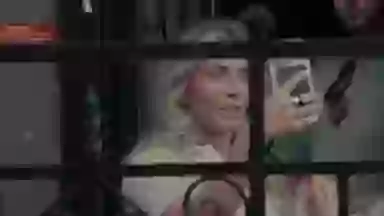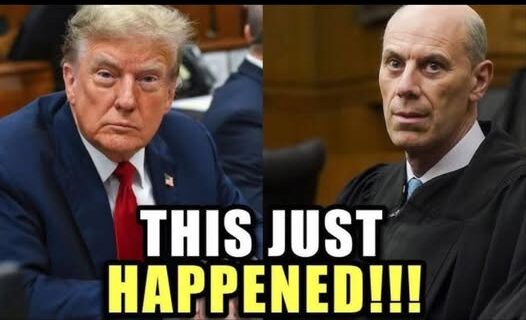Channel 4 aired 1000 Men and Me: The Bonnie Blue Story, a documentary that ignited fierce debate even before its premiere. Following Tia Billinger, known as Bonnie Blue, the film delves into the life of the 26-year-old adult content creator who gained infamy for claiming to have slept with 1,057 men in 12 hours. Directed by Victoria Silver, the documentary explores whether Blue is a “dangerous predator” pandering to male fantasies or an “empowered, sex-positive entrepreneur,” as Channel 4 posed in its statement to The Mirror. The graphic nature of the content, including explicit scenes of Blue’s work, drew significant backlash, with viewers on X, like @RoRoSuperRo, calling it “absolutely depressing” and criticizing the platforming of Blue’s lifestyle. Yet, amid the controversy, a fleeting moment in the film offered viewers what some believe was a glimpse of the “real” Bonnie Blue, revealing a complex and guarded individual beneath her provocative persona.
The Moment the Annointerougeurs Spotted the “Real” Bonnie
Critics and viewers pinpointed a single, unguarded moment in the documentary as a rare crack in Blue’s carefully crafted facade. As described by Olivia Petter in The Independent, while filming a sultry TikTok clip inviting men to her 1,000-men “challenge,” Blue’s “face falls, almost accidentally slipping into an expression that’s somewhere between exasperation and boredom” the moment the camera stops. This brief lapse, noted as one of the “only moments of verisimilitude,” contrasted sharply with her confident, unemotional persona, where she claims, “My brain works different. I’m just not emotional.” Social media reactions echoed this sentiment, with one X user noting, “This Bonnie Blue documentary is quite something really gets you to understand her complex mind,” suggesting the moment hinted at a deeper, perhaps conflicted, inner life. This fleeting vulnerability stood out against Blue’s otherwise bold declarations, like “Everyone has sex, just some of us film it,” raising questions about the authenticity of her public image.
Backlash and Ethical Debates
The documentary’s explicit content, including scenes of Blue’s marathon event with 1,600 condoms and 50 balaclavas prepared, sparked outrage for its perceived glorification of extreme behavior. The Telegraph described the film as making viewers feel “grubby, sleazy,” with its uncritical lens failing to challenge Blue’s claims of empowerment, such as her assertion that sleeping with “barely legal” men is “relatable” for her audience. Critics on X, such as one who wrote, “Why on earth are Channel 4 giving airtime to freaks that marginalise and fuel misogyny against women such as Bonnie Blue????” argued the film normalizes harmful attitudes, especially given Blue’s controversial statements, like praising Andrew Tate as a “really nice guy” despite his pending charges, which he denies. Channel 4 defended the film, stating, “The explicit content is editorially justified and provides essential context,” aiming to reflect modern Britain’s evolving attitudes toward sex and feminism. However, The Guardian criticized director Victoria Silver for not challenging Blue’s views, noting her “steely” demeanor deflected deeper scrutiny.
A Lonely Life Behind the Headlines
Despite Blue’s claims of loving her lucrative career—reportedly earning £1.5 million monthly before her OnlyFans ban for extreme content—the documentary revealed a lonely existence. The Standard highlighted scenes of Blue doing jigsaws alone in Los Angeles with the flu, rarely leaving home without security due to public backlash, and relying on a small team, including her videographer Josh and stylist Ermez, who double as her closest friends. Her family, including her parents and grandmother, appeared supportive, with her mother stating, “If you could earn a million pounds a month, your morals would soon change,” yet her stepfather’s stoic presence at the screening, as noted by The Telegraph, suggested unspoken tension. Blue’s emotional detachment, likened to Katie Price’s by critics, and her reliance on “rage bait” tactics, like derogatory comments about “fat women,” fueled further criticism for promoting misogyny, as per The Mirror. This isolation contrasted with her public bravado, deepening the intrigue around the “real” Bonnie.
A Complex Legacy and Cultural Reflection
The documentary, described as “profoundly sad” by The Standard and “dangerous” by City AM, failed to fully unravel Blue’s motivations, leaving viewers divided. Some, like Metro’s Brooke Ivey Johnson, argued Blue’s rejection of sexual double standards challenges societal norms, stating, “Bonnie does not see herself as a victim, so who am I to call her one?” Others, including The Irish Independent, called it a “grim, bleak, and depressing” spectacle that exploits Blue’s infamy without critical depth. Channel 4’s Tim Hancock defended the film as a real-time story “at the edges of modern morality,” yet its graphic nature, aired days after the UK’s Online Safety Act, led to accusations of hypocrisy, with one X user noting, “Bonnie Blue gets a documentary… but we need IDs to see posts on X because ‘we need to protect the kids.’” The fleeting moment of Blue’s unguarded expression became a focal point, suggesting a hidden vulnerability that the film, streaming now on Channel 4, left largely unexplored, leaving audiences to ponder the true cost of her polarizing empire.


